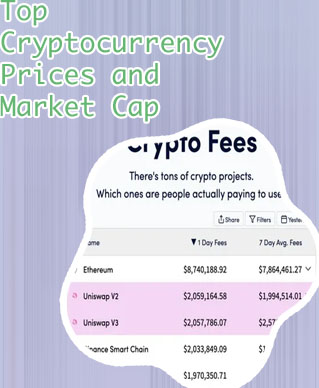
Cryptocurrency transactions can sometimes come with hefty fees that can eat into profits or make investments less appealing. It's important for cryptocurrency users to understand how these fees work and how to minimize them to improve their overall investment strategy. The following list of articles provides valuable insights and tips on how to navigate and reduce crypto fees effectively.
Understanding the Basics of Cryptocurrency Transaction Fees

Cryptocurrency transaction fees are a crucial aspect of using digital currencies, yet many users may not fully understand how they work. In simple terms, transaction fees are charges that users pay to miners to process their transactions on the blockchain. These fees can vary depending on a number of factors, such as network congestion, transaction size, and the type of cryptocurrency being used.
One important thing to note is that transaction fees are not fixed and can fluctuate based on market conditions. During times of high network activity, fees tend to go up as miners prioritize transactions with higher fees attached to them. Conversely, when network activity is low, fees may be lower as miners have more capacity to process transactions.
It is important for cryptocurrency users to understand how transaction fees work in order to avoid overpaying or experiencing delays in transaction processing. By keeping an eye on network activity and adjusting their fees accordingly, users can ensure that their transactions are processed in a timely manner without breaking the bank.
For anyone involved in the world of cryptocurrency, whether as a trader, investor, or casual user, understanding transaction fees is crucial. By grasping the basics of how fees are determined and fluctuate, users can make informed decisions when sending and receiving digital assets. This knowledge can help users save money and avoid frustration in
Strategies to Minimize Crypto Exchange Fees
In the fast-paced world of cryptocurrency trading, minimizing exchange fees is crucial to maximizing profits. With the growing popularity of cryptocurrencies like Bitcoin, Ethereum, and others, more and more traders are looking for ways to reduce the fees associated with exchanging these digital assets.
One effective strategy to minimize crypto exchange fees is to carefully compare the fee structures of different exchanges. Some exchanges charge a flat fee per transaction, while others may charge a percentage of the total transaction amount. By choosing an exchange with lower fees, traders can save a significant amount of money over time.
Another important strategy is to take advantage of promotional offers and discounts offered by exchanges. Many exchanges offer reduced fees for high-volume traders or for those who hold a certain amount of their native token. By taking advantage of these discounts, traders can further minimize their exchange fees and increase their overall profitability.
Furthermore, using limit orders instead of market orders can also help reduce fees. Market orders are typically executed immediately at the current market price, which may incur higher fees. On the other hand, limit orders allow traders to set a specific price at which they are willing to buy or sell, which can result in lower fees.
The Impact of Gas Fees on Ethereum Transactions
Gas fees on the Ethereum network have become a pressing issue for users around the world. These fees, which are required to process transactions on the blockchain, have surged in recent months due to network congestion and increased demand. As a result, users are facing high costs and delays when sending Ethereum or interacting with decentralized applications (dApps).
The impact of gas fees is particularly significant for smaller transactions, as the fees can sometimes exceed the value of the transaction itself. This has led to frustrations among users who are looking for efficient and cost-effective ways to use the Ethereum network. Additionally, high gas fees can hinder the scalability of Ethereum and limit its potential for mainstream adoption.
One practical use case that showcases the impact of gas fees is in the world of decentralized finance (DeFi). DeFi platforms allow users to access financial services without the need for traditional intermediaries, offering opportunities for lending, borrowing, and trading. However, high gas fees on Ethereum can eat into the profits of DeFi users, making it less appealing to participate in these platforms.
In conclusion, the impact of gas fees on Ethereum transactions is a significant challenge that the community must address in order to realize the full potential of the blockchain network. As users and developers work towards solutions to reduce fees and improve scalability, it is
